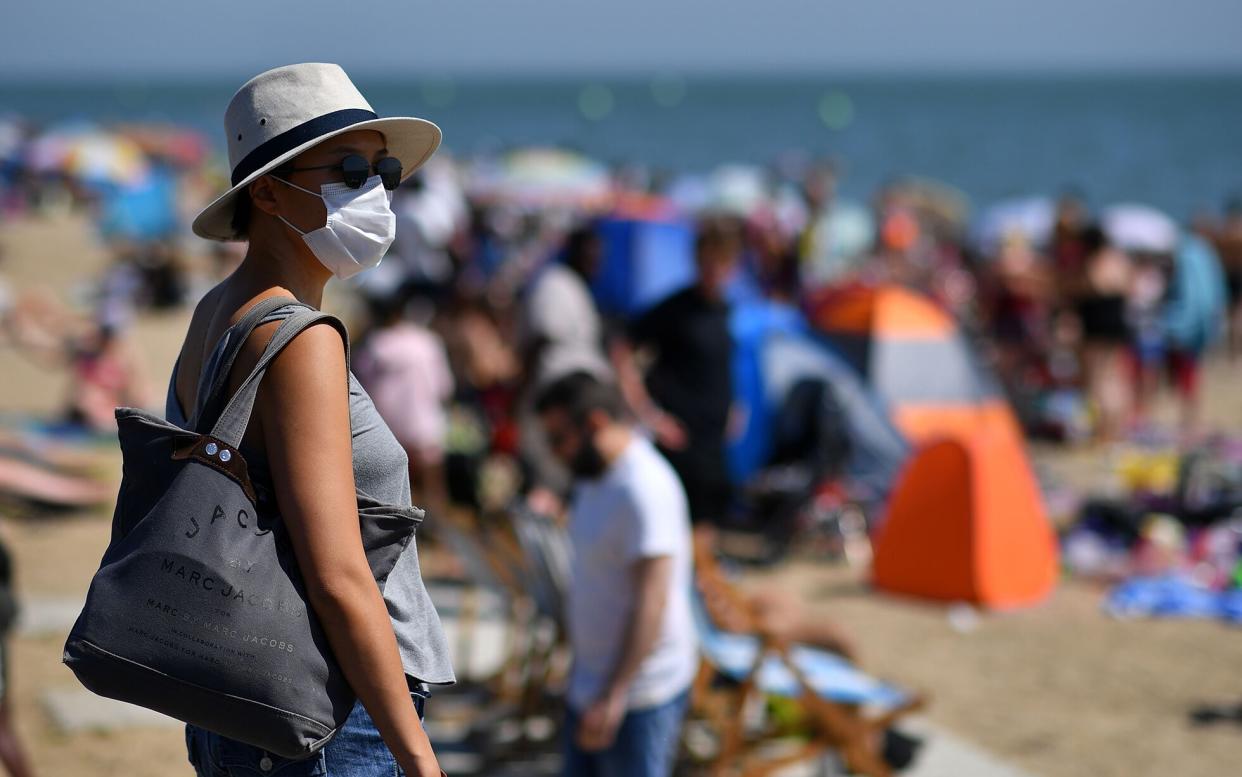What the new face mask rules mean for your summer staycation

Face coverings must be worn in all shops in England – but what are the protocols elsewhere in the UK?
Planning a day trip or staycation in the UK this summer? Then you had better remember to pack your face mask. After months of dithering and debating their effectiveness, the Government has announced that face coverings will be mandatory in all shops in England from July 24.
The news brings the country more in line with the policies of Spain, Italy and Germany, but raises further questions. A mask will soon be required if you want to buy a loaf of bread, but do you also need to wear one when going to the beach, or sitting in a pub garden? And how do the rules differ in Scotland, Wales and Northern Ireland? Here, we've compiled the rules and etiquette surrounding face masks throughout the four nations.
England
As noted above, face coverings will be mandatory in all shops from July 24. Anyone caught without a mask will face a fine of £100 (reduced to £50 if paid within 14 days). Children under 11 and those with certain medical conditions will be exempt from the rule.
However, patrons at restaurants, pubs and cafés will not have to wear face masks. When discussing the new measures for shops, environment secretary George Eustice said that coverings are an "appropriate mitigation" against the risk of Covid-19, but that the rule would not work for hospitality businesses.
Masks are not mandatory at hotels and campsites either. Going forward, it is worth checking with the establishment as they could introduce their own policy (though this would not be legally binding). Some hotels in Italy, for example, require coverings to be worn anytime you step outside your room.
Face masks have been required on public transport (specifically buses, trains, ferries and planes) since June 15 and it is worth noting that many taxi firms, such as Uber and Addison Lee, have also put in place their own rules requiring passengers to wear masks.
Unlike in parts of Spain, masks are not required to be worn in National Parks or on beaches, though they will no doubt be more commonplace in these settings as people become accustomed to wearing them while running errands and travelling to work.
There is no doubt that there is an ambivalent attitude to face masks in the UK compared with other countries. A recent YouGov poll found that only 36 per cent of people in Britain wear face masks when in public whereas this figure is 83 per cent in Italy and 86 per cent in Spain. Many Asian countries, such as China and Vietnam, where there is much more familiarity with face masks, show similarly high levels of compliance.
Scotland
Up in Scotland, it has been a requirement to wear face masks in shops since July 10. Those who don’t comply can be fined £60 (reduced to £30 if paid within 28 days), though it has been reported that no fines were issued on the first weekend the rule came into action.
When announcing the measure, Nicola Sturgeon told Scotland that wearing the coverings should become “as normal as putting on a seat belt.”
As in England, coverings must be worn on public transport and the rule extends to taxis. No explicit rules have been issued for reopening restaurants and hotels, though it is understood that this remains under review.
Wales
Wales has been slower to introduce face masks than other parts of the UK, but they will be required on public transport and in taxis from July 27. First minister Martin Drakeford has also said that they should be worn in any situation where social distancing was not possible. He specified that the coverings should be three layers thick.
However, the Welsh Government has stopped short of making masks mandatory in other public places. On this point, Mr Drakeford said: "The advice is that if places are crowded then face coverings are advisory. Where places are not crowded it is a matter for the individual citizen to make that decision."
Northern Ireland
Donning a face mask on public transport became mandatory in Northern Ireland on July 10. Those with certain medical conditions and children under 13 are exempt.
Meanwhile, making masks mandatory in shops is apparently ‘under review’. No plans have been announced regarding hospitality businesses.


